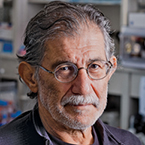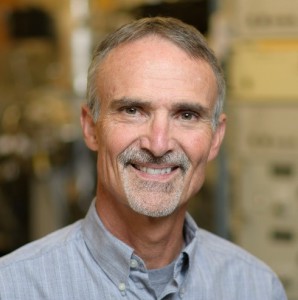
The NJ Mass Spectrometry Discussion Group is pleased again this year to announce our “Annual NJMSDG Vendor Night, Meeting and Poster Session”.
NJ MSDG is the second largest mass spectrometry professional association in the nation behind ASMS, with over 1,100 members in the tristate area.
We had a fantastic turn out for our last year’s vendor show (~250 attendees) with guest lectures.


Don’t miss this incredible network, learning and cross-fertilization opportunity. Save the date!
Date: Tuesday, September 12, 2017
Venue: Franklin Plaza Hotel (formerly named Holiday Inn Somerset-Bridgewater)
195 Davidson Avenue, Somerset, NJ 08873
More than 200 attendees expected
Please register here. Registration is free.
Program
2:30 – 3:00 PM Vendor & Poster Set Up – Hotel Ballroom
3:00 – onwards Registration & Vendor Show- Hotel Ballroom
3:00 – 4:30 PM NEW! Concurrent Workshop for Academics
4:15 – 5:00 PM Poster Session & Cocktail Break / vendor interaction
5:00 – 5:45 PM Prof Scott McLuckey (Purdue University)
5:45 – 7:00 PM Buffet Dinner (raffle prizes will be announced)
7:00 – 8:00 PM Prof Brian Chait (The Rockefeller University),
Speaker 1: Prof Scott McLuckey, PhD
Purdue University
“The Development of Electrostatic Linear Ion Traps as General Purpose Tandem Mass Spectrometers”
Abstract: We have been developing approaches to exploit the unique geometry of the linear electrostatic ion trap (ELIT) for general purpose mass spectrometry and tandem mass spectrometry. This effort has involved the implementation of ion isolation and ion activation methods along with optimization of mass analysis. A synopsis on our current status will be provided along with a detailed comparison of two complementary approaches to mass analysis that are capable of being executed simultaneously in the ELIT. One approach involves the detection of ions via image current measurement with subsequent Fourier transformation of the time-domain signal. We refer to this approach as FT-ELIT MS. Alternatively, ions can be detected after a fixed storage time via an externally mounted channelplate detector. We refer to this approach as multi-reflection time-of-flight (MR-TOF) MS. Both approaches can be used on the same ion population because the detection approaches are independent and do not interfere with one another. Based on the inherent characteristics of the two approaches, they exhibit advantages and disadvantages relative to one another, depending upon the needs of the measurement. As a result, they tend to be complementary. Currently, the FT-ELIT approach in our apparatus is capable of achieving mass resolution in excess of 100,000 FWHM at m/z 176. However, MR-TOF experiment achieves high resolution in a shorter period of time at the expense of mass range. These differences are illustrated and discussed at a fundamental level and musings on how they might be used in concert will be discussed.
Bio:  Scott A. McLuckey received his B.S. in Chemistry at Westminster College (New Wilmington, PA) in 1978 and doctorate in Analytical Chemistry at Purdue University (West Lafayette, IN) in 1982. He then served as a Postdoctoral Fellow at the FOM Institute for Atomic and Molecular Physics (Amsterdam, The Netherlands) until late 1983. He was then awarded a Wigner Fellowship at Oak Ridge National Laboratory in the Analytical Chemistry Division. While at Oak Ridge, he served in such capacities as Group Leader, Organic and Biological Mass Spectrometry, and Head of Analytical Spectroscopy Section within the Chemical Sciences Division. In 2000, he moved to Purdue University as Professor of Chemistry. In June 2008, he was named the John A. Leighty Distinguished Professor of Chemistry at Purdue.
Scott A. McLuckey received his B.S. in Chemistry at Westminster College (New Wilmington, PA) in 1978 and doctorate in Analytical Chemistry at Purdue University (West Lafayette, IN) in 1982. He then served as a Postdoctoral Fellow at the FOM Institute for Atomic and Molecular Physics (Amsterdam, The Netherlands) until late 1983. He was then awarded a Wigner Fellowship at Oak Ridge National Laboratory in the Analytical Chemistry Division. While at Oak Ridge, he served in such capacities as Group Leader, Organic and Biological Mass Spectrometry, and Head of Analytical Spectroscopy Section within the Chemical Sciences Division. In 2000, he moved to Purdue University as Professor of Chemistry. In June 2008, he was named the John A. Leighty Distinguished Professor of Chemistry at Purdue.
McLuckey’s research emphases have been placed in the areas of gas-phase ion chemistry and instrumentation for organic and biological mass spectrometry. Fundamental aspects of ionization, unimolecular reactions, and bi-molecular reactions have been studied with the goal of improving the capabilities of analytical mass spectrometry. Ion activation, ion/molecule reactions, and ion/ion reactions have been major focal areas within the context of the mass spectrometry/mass spectrometry experiment. Instrumentation for tandem mass spectrometry has also been highlighted with emphasis on electrodynamic ion traps and ion trap/hybrid instruments. This research, performed in conjunction with colleagues and post-docs at ORNL, students and post-docs at Purdue, and other collaborators, has been described in roughly 350 papers appearing in the peer-reviewed literature. He has been awarded eleven U.S. Patents on various technologies associated with mass spectrometry. The major current areas of emphasis are the identification and characterization of macro-molecules, primarily via whole molecule tandem mass spectrometry, ion/ion reaction chemistry, and the development of electrostatic ion traps for tandem mass spectrometry. Recognition for the work has included the Biemann Medal, Hites Award, and Distinguished Contribution Award from the American Society for Mass Spectrometry (ASMS), The Curt Brunneé Prize (2000) and Thomson Medal (2016) from the International Mass Spectrometry Foundation, and the Division of Analytical Chemistry Chemical Instrumentation Award and Field and Franklin Award in Mass Spectrometry from the American Chemical Society
McLuckey served as an editor of the International Journal of Mass Spectrometry from January, 1978 through December, 2016 and currently serves as an Associate Editor of Analytical Chemistry. He has co-taught short courses at the annual ASMS Conference on Fundamental Aspects of Mass Spectrometry (3 years) and Quadrupole Ion Traps (6 years). He served as VP for Programs, President, and Past-President of the ASMS from July, 2008-June 2014. He currently serves on the executive board of the International Mass Spectrometry Foundation as the North American Regional Representative.
Speaker 2: Prof Brian Chait
The Rockefeller University
“Towards a ‘Molecular Microscope’ for the Cell”
To do this, we are developing approaches for elucidating proximal, distal, and transient protein-protein interactions in cellular milieus, as well as for determining distance restraints between amino acid residues within large protein assemblies by chemical cross-linking and mass spectrometry. The long-term goal of this research is to develop what I will loosely term a “molecular microscope” for defining cellular systems with scales spanning all the way from dimensions of the cell to atomic resolution of molecules.
Bio:  Brian T. Chait was born in Cape Town, South Africa. He received his B. Sc. (1969) and B. Sc. (Hons) (1970) from the University of Cape Town and D.Phil. (1976) in experimental nuclear physics from Oxford University. He has spent the past 38 years at The Rockefeller University, where he is currently Camille and Henry Dreyfus Professor, heads the Laboratory of Mass Spectrometry and Gaseous Ion Chemistry, and directs the NIH-funded National Resource for the Mass spectrometric Analysis of Biological Macromolecules, constructing novel mass spectrometers, developing useful methodologies, and applying the developed technologies to challenging biological and biomedical problems. This work is documented in 392 research papers and 31 US patents, many of which are commercialized and widely used throughout the world. These publications have been cited 48,000 times, with an average citation rate of 122 citations/paper. Professor Chait has received several awards for his research in developing instrumentation and methods for characterizing proteins, including the 2000 Bijvoet Medal, the 2002 ACS Field & Franklin Award for Outstanding Achievement in Mass Spectrometry, the 2007 HUPO 2007 Distinguished Discovery Award In Proteomics, the 2012 Per Edman Award, and the 2015 ASMS Award for a Distinguished Contribution in Mass Spectrometry.
Brian T. Chait was born in Cape Town, South Africa. He received his B. Sc. (1969) and B. Sc. (Hons) (1970) from the University of Cape Town and D.Phil. (1976) in experimental nuclear physics from Oxford University. He has spent the past 38 years at The Rockefeller University, where he is currently Camille and Henry Dreyfus Professor, heads the Laboratory of Mass Spectrometry and Gaseous Ion Chemistry, and directs the NIH-funded National Resource for the Mass spectrometric Analysis of Biological Macromolecules, constructing novel mass spectrometers, developing useful methodologies, and applying the developed technologies to challenging biological and biomedical problems. This work is documented in 392 research papers and 31 US patents, many of which are commercialized and widely used throughout the world. These publications have been cited 48,000 times, with an average citation rate of 122 citations/paper. Professor Chait has received several awards for his research in developing instrumentation and methods for characterizing proteins, including the 2000 Bijvoet Medal, the 2002 ACS Field & Franklin Award for Outstanding Achievement in Mass Spectrometry, the 2007 HUPO 2007 Distinguished Discovery Award In Proteomics, the 2012 Per Edman Award, and the 2015 ASMS Award for a Distinguished Contribution in Mass Spectrometry.
